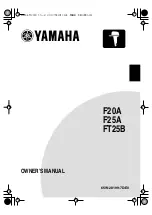
TAKE CHARGE OF YOUR
Today’s modern outboards and onboard electronics require juice to run.
That’s why your electrical system is one of the most important systems on
your boat. Because boats constantly operate on or are near water, electrical
system care is even more important, especially in highly corrosive
saltwater environments. Make sure your electrical system is always
ready to perform with these simple checks and procedures.
ELECTRICAL SYSTEM
Check the wiring and connections.
The electrical system’s job is to carry voltage
from one place to another. If the voltage
can’t make the journey, or if it’s diminished
when it gets there, the receiving device will
not function properly, if at all. The goal is to
have as much voltage (or electrical energy)
arrive at Point B as left Point A. As electricity
passes through a device, some parasitic
loss is normal. However, corrosion impedes
electricity’s ability to travel, which can cause
significant voltage loss or intermittent voltage. Either can wreck the good times, but with simple
visual inspections and physical actions these scenarios can usually be avoided.
Some electrical corrosion can be easy to see, such
as corrosion on battery posts or electrical panel
connections. But some damage can be more difficult
to see, such as internal corrosion that has rotted
some or all of the individual strands inside a wire’s
cover. You can use an ohmmeter to check electrical
connections and wires for excessive resistance.
There should be no more than 0.1-0.2 ohm
resistance between electrical connectors on
each end of a wire. Any more than that and you
should investigate further.
14














































